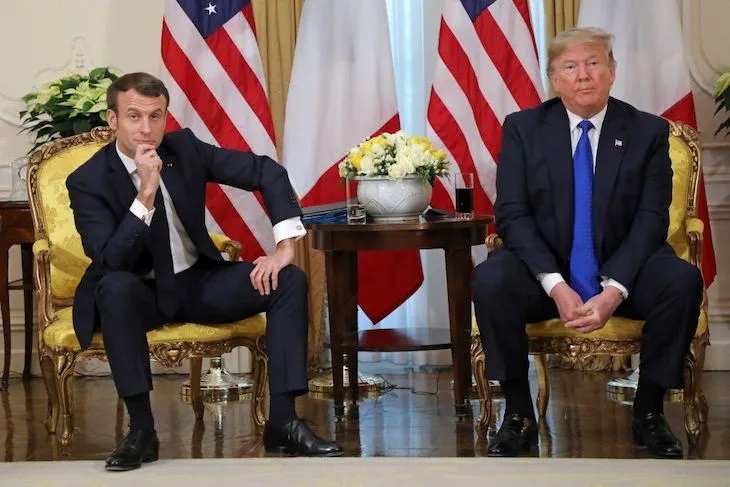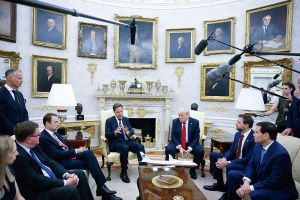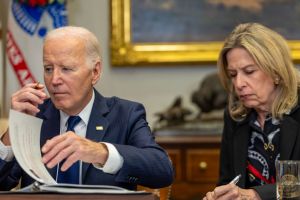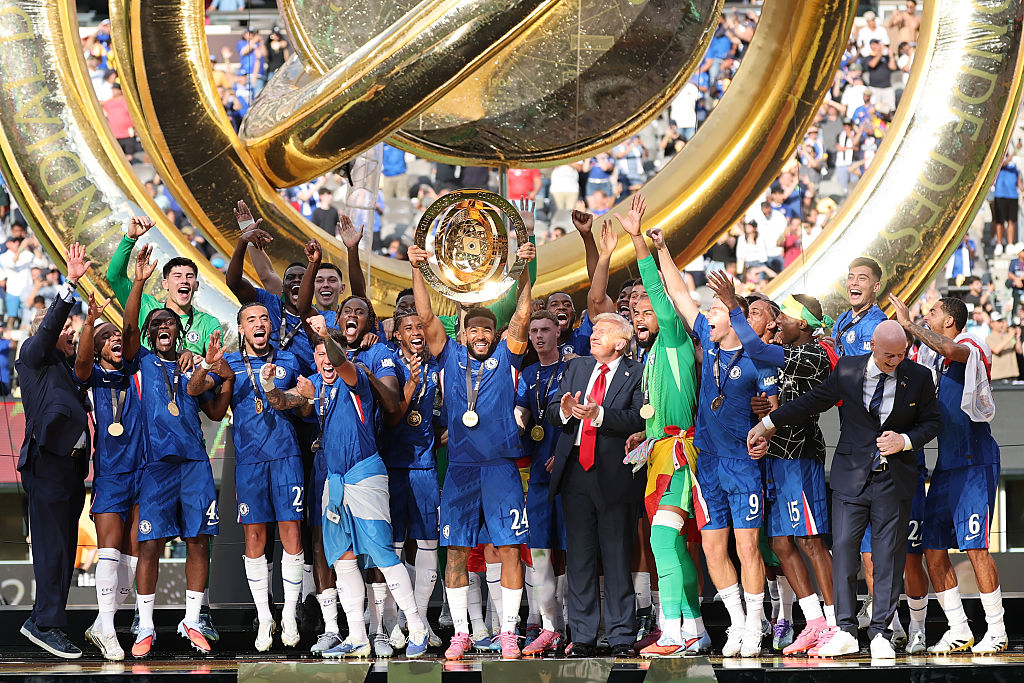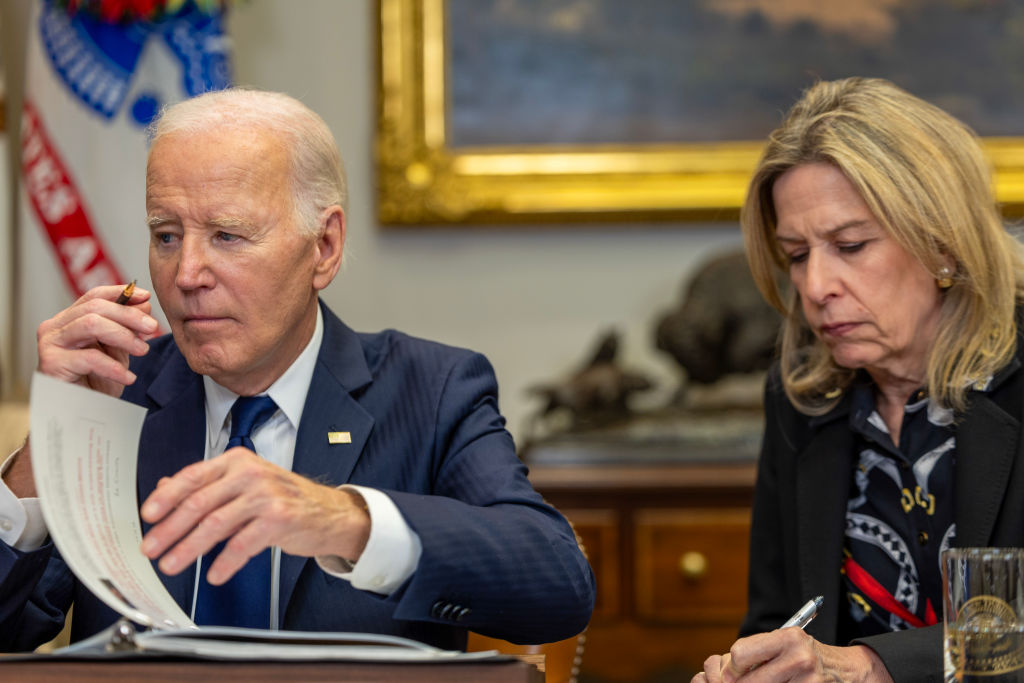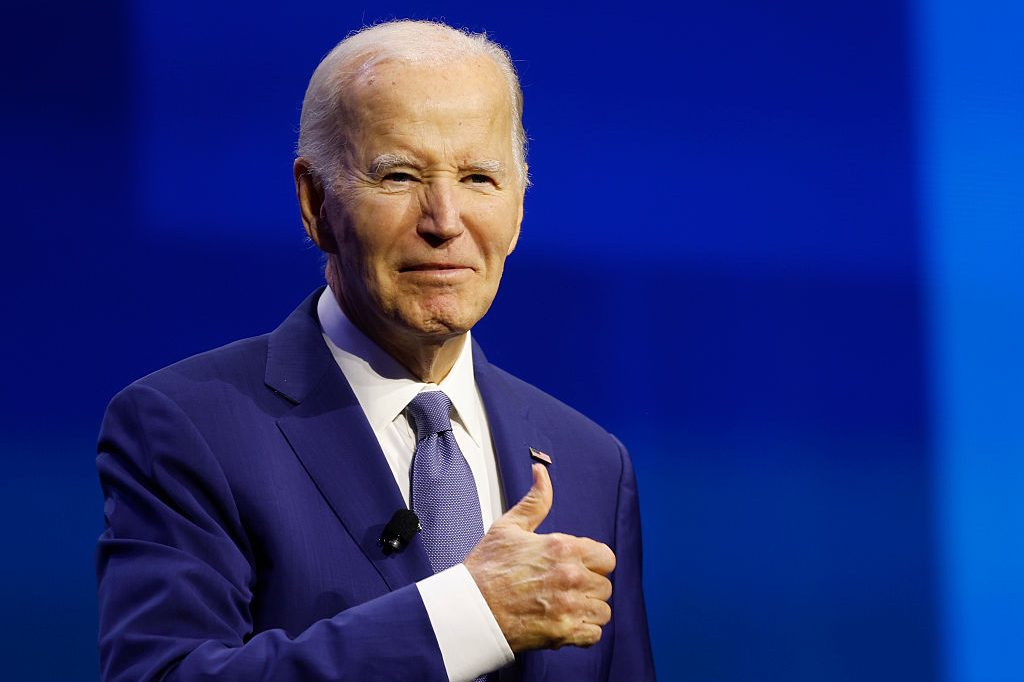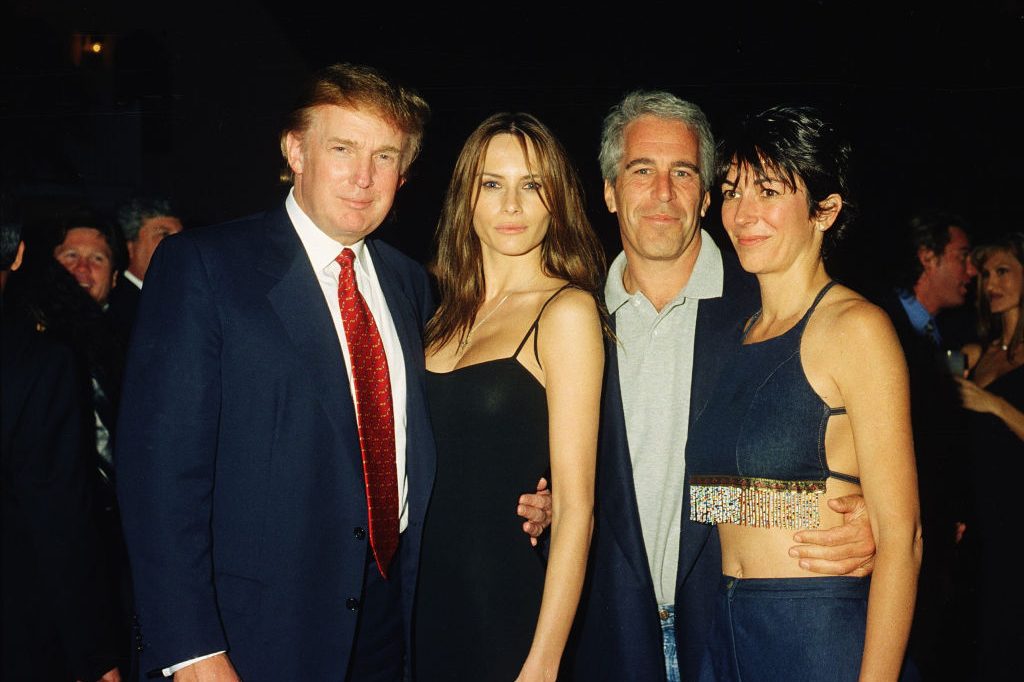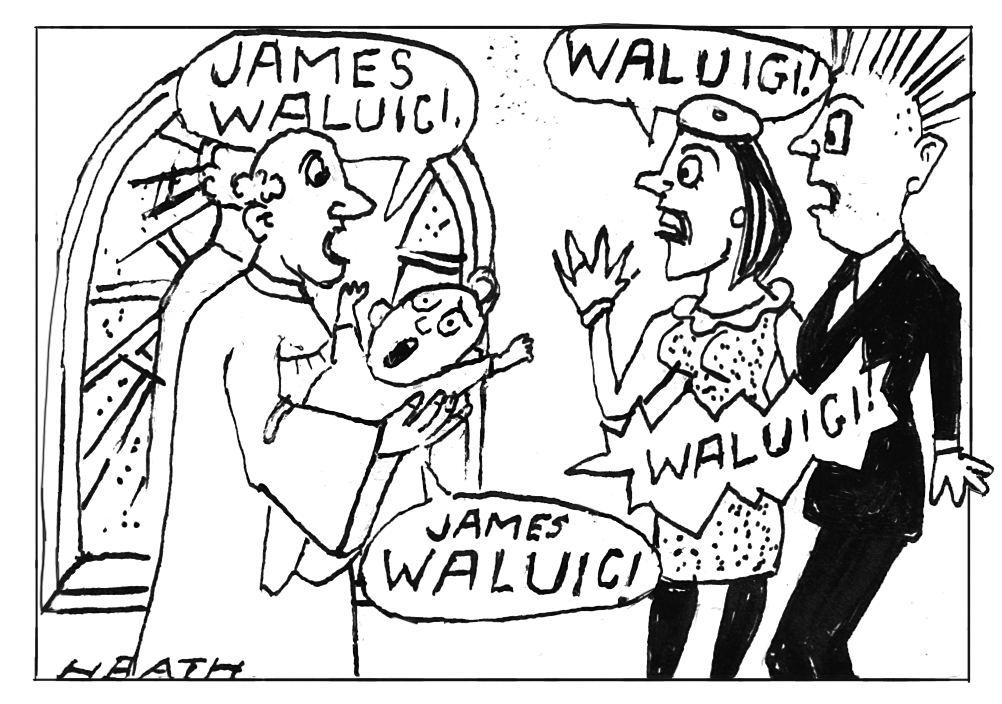We are still fifteen months away from the 2024 presidential election, but much of the world is already busy trying to decipher the results. With a second Donald Trump presidency in the realm of possibility, governments around the world are holding strategy sessions and informal conversations about how such an event would change US foreign policy, impact their relationships with the United States and, just as importantly, what they can do to mitigate whatever shock to the system that may
For Europe specifically, Trump wasn’t just a shock — it was a lightning bolt to the skull. For a continent accustomed to getting what it wanted from Washington, enjoying relatively harmonious trade ties and complacently living behind the wall of US military protection, Trump’s worldview was almost alien. Here was a man who simply didn’t buy into the notion of the so-called transatlantic relationship. Alliances most American politicians viewed as sacred were seen by Trump as a rip off. Why, he constantly asked, was the US providing Europe with protection when it wasn’t pulling its weight and allowing its defense budgets to wither?
The only head-of-state in Europe who seems to grasp this elemental fact is Emmanuel Macron
European politicians, like most US foreign policy elites, hoped these views would magically disappear the moment Trump stepped into the Oval Office. They didn’t. Trump used tariffs liberally to push for better trade terms. He lambasted the Europeans during international conferences that were meant to solidify transatlantic ties. He flirted with leaving Nato, or at least used the threat of leaving Nato to push European governments into increasing defense spending in line with NATO’s 2 percent of GDP guideline. Germany, the wealthiest country in Europe, was Trump’s favorite target — during one infamous episode at the 2018 NATO summit, Trump asked point blank why the US should be protecting Germany from Russia when Berlin was buying Russian natural gas at a heavy clip.
Given this history, it’s understandable why many in Europe are wary of Trump possibly returning to the scene. European policy elites have been griping about what it could all mean. “For most European governments, it is almost too upsetting to think about, let alone debate in public,” Steven Erlanger, the New York Times’s chief diplomatic correspondent, wrote this month.
Griping, however, is a waste of time and energy. And it’s not great for problem solving. While nobody can say with any degree of certainty how the 2024 US election will turn out (that’s for the American voter to decide), policymakers have to prepare for every eventuality. The only head-of-state in Europe who seems to grasp this elemental fact is French president Emmanuel Macron.
Macron is a man with extreme self-confidence. He likes to think himself as a philosopher-in-politician’s clothing, someone who carries big, conceptual ideas on his shoulders as well as the intellect and persuasion power to effectively convince the masses. Whether one buys into Macron’s magic is beside the point; the point, rather, is that he’s at least consistent about what he wants Europe to become: a pole of the international system in its own right with the military, economic and diplomatic resources to project its power when needed.
“Strategic autonomy,” or the notion that Europe should lessen its dependence on the US instead of following Washington like blind sheep, is a controversial topic on the European continent. Eastern Europe, Poland and the Baltic States in particular, view Macron’s harping about European independence as a smokescreen for French power. Germany may sympathize with the idea, but multiple generations of policymakers in Berlin have been taught to keep the Americans as closely wedded to Europe as possible. Making strategic autonomy a success requires ambition, responsibility, and putting your money where your mouth is — and let’s face it, Germany hasn’t been especially great at any of this.
For Macron, however, this is the best policy choice available. While the French leader may not have coined the phrase “strategic autonomy,” he is arguably its greatest salesman. In September 2017, months after he won the presidential election, Macron delivered an address at the Sorbonne about why Europe needed to get its act together, heal its internal divisions and become a serious actor on the international stage.
“In Europe, we are seeing a two-fold movement: gradual and inevitable disengagement by the United States, and a long-term terrorist threat with the stated goal of splitting our free societies,” Macron said at the time. Those problems, he added, can only be remedied with greater self-sufficiency and self-confidence as well as the investment to carry it out.
Nearly six years later, Macron delivered pretty much the same message this week in his annual remarks to French ambassadors. The days of relying on the Americans for everything are over. Therefore, “we must strengthen our technological and military autonomy, produce [a] more, standardized… European defense industry and think more about our defense.” Europeans, he insisted, have been slowly coming around to his position, aided in no small part by the war in Ukraine.
Of course, we shouldn’t give Macron too much credit. The Europe he describes in his speeches often doesn’t square with the Europe we see today. If you want proof, just take a look at NATO’s latest defense expenditure report, in which a majority of European members are still below the 2 percent spending benchmark. For all the talk about a Europe being reawakened to the new geopolitical reality, the fact is that the US still composes two-thirds of NATO’s total military spending.
In short, Macron still has a lot of work to do on his pet project. But at least he has a project, unlike most of his colleagues.
This article was originally published on The Spectator’s UK website.



